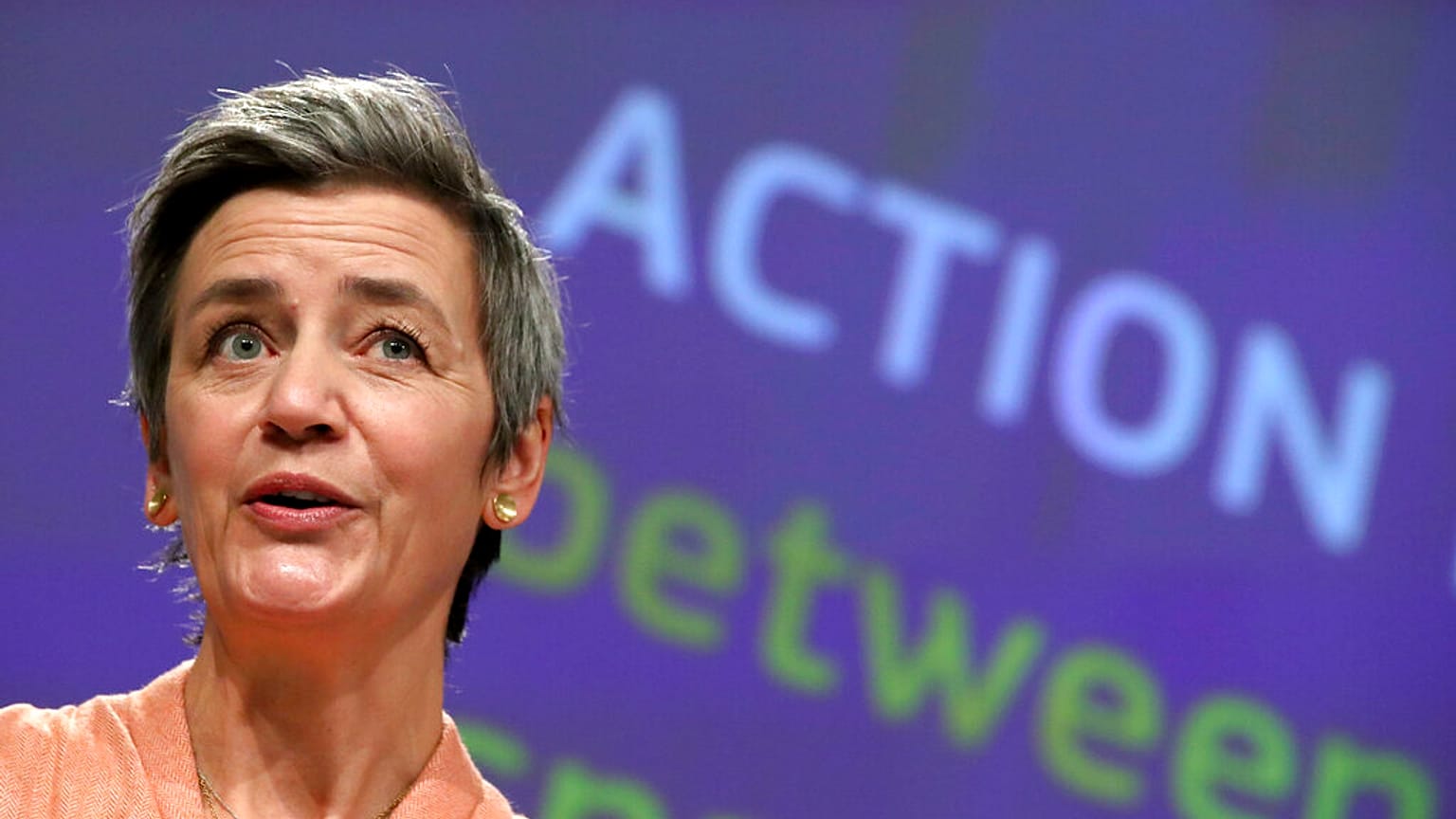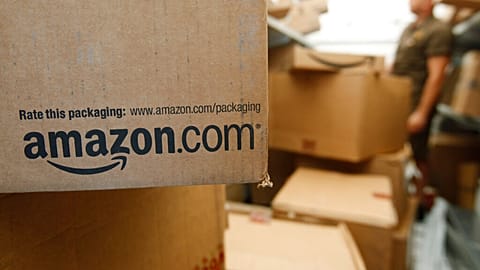High profile competition cases against Apple and Starbucks have raised awareness and added to political pressure, despite legal setbacks, Euronews was told
A recent set of court judgments leaves the European Commission's battle to curb tax avoidance using competition powers looking in bad shape as it enters the last year of its mandate.
 ADVERTISEMENT
ADVERTISEMENT
 ADVERTISEMENT
ADVERTISEMENT
But the decade-long campaign has aided awareness and political pressure, even if its future seems murky, Euronews has been told by mutliple sources.
Starting in 2013, and spurred by the LuxLeaks revelations shortly after, the EU issued a series of probes involving well-known brands such as McDonald’s, Apple and Ikea.
The bloc used tough competition powers to ensure companies weren’t gaining an unfair advantage through special deals cut with national tax authorities.
The campaign drew criticism from then-President Donald Trump, who said EU antitrust chief Margrethe Vestager “really hates the USA.”
Perhaps more worryingly for Vestager, it’s not found much favour with the EU’s own courts either.
Earlier in December, the Court of Justice rejected her case involving Engie, the French energy supplier formerly known as GDF Suez, and its tax status in Luxembourg.
Amazon said its own favourable ruling, which came the week after Engie’s, confirmed the e-commerce giant had always followed the law and not received special treatment in Luxembourg.
Yet some activists argue that, despite legal setbacks, it was still right for the EU to take on multinational tax-dodging.
“Tax avoidance steals important resources from governments that are needed for financing public services, but also the green transition,” said Chiara Putaturo, deputy head of Oxfam’s EU Office, adding there’s a “direct link with inequality.”
It’s legally uncontroversial that the EU’s tough anti-subsidy laws, known as state aid rules, cover tax breaks as well as government spending.
But the novel approach taken by Vestager – zeroing in on tax rulings, in which authorities bless corporate arrangements in advance – requires the difficult legal task of proving a company gained preferential treatment, she argues.
The campaign shone a welcome light on the “ridiculous” low levels of taxes paid by well-known corporate behemoths, Putaturo said.
Apple core
All eyes are now on the case where final judgment still looms – and, with €14.3 billion in tax at stake, it’s a big one.
“The next case, Apple, I think that will be key,” said Putaturo – with the bloc’s highest court set to rule within the next few months on a 2016 Commission finding that the company’s Irish tax affairs were unlawful.
“Based on that, the Commission will probably decide how to proceed with Nike and Ikea,” she added, citing two major probes the Commission has launched but not concluded, alongside one for food packaging maker Huhtamäki.
A recent court opinion by EU Advocate General Giovanni Pitruzzella bolsters Vestager’s claims about an arrangement that saw Apple pay rates as low as 0.005%.
She also scored a victory in a case concerning the taxation of excess profits in Belgium – which, unlike other cases, targeted a range of companies that together amounted to an effective regime.
Yet negative court decisions haven’t deterred the Danish politician.
In a March speech after rejections of her cases against automaker Fiat Chrysler and coffee chain Starbucks, Vestager said court losses offered valuable guidance and clarification, and that more probes would follow in the not-too-distant future.
The Amazon judgment is “hugely limiting ... we’re definitely not done when it comes to fairness in taxation,” Vestager said on 14 December, and a Commission spokesperson told Euronews that it will continue to scrutinise aggressive tax planning “with all the tools at its disposal.”
Luxembourg
Yet Vestager’s initially creative approach may now have to be tempered, Fredrik Lowhagen, Counsel at Linklaters, told Euronews.
“I think that’s fair to say that the tax ruling cases were politically motivated,” Lowhagen said. “It’s not the first time [the Commission] has used State aid law in this manner.”
“The Commission superimposed its own ideas about what the national tax systems ought to look like,” Lowhagen said.
“They can’t do that anymore,” after courts told them they need to look at the letter of national codes, rather than general principles and guidelines from the OECD, he added.
For others, the Commission’s campaign still had an impact, pressuring national governments to agree anti-tax avoidance directives – no mean feat, as any single one could have vetoed.
Tax rulings, whose details are now shared among EU governments, are a lot less popular than they were, and some countries have also reformed their own domestic laws, Pierre-Antoine Klethi, co-head of the tax controversy team at Loyens & Loeff Luxembourg, told Euronews.
“The times of state aid investigations as a stick to beat member states into accepting corporate tax reforms at EU level seems over,” Klethi said, with recent court losses dulling the political pressure to act.
Distracted
EU probes spanned a period which saw antitrust officials distracted by Covid, and more lately by Vestager’s unsuccessful bid to become President of the European Investment Bank.
She’s now back in office – at least until the end of 2024, when a new Commission takes effect.
Whatever happens next, the Commission “will continue to investigate vigorously” subsidies that put fair competition in jeopardy, Totis Kotsonis, a partner at Pinsent Masons, told Euronews – but he also points to a wider context.
While the tax campaign dragged on, wider competition policy didn’t sit still, he points out.
“State aid is becoming a powerful tool in seeking to ensure the EU’s strategic autonomy,” as the bloc seeks to onshore important sectors, Kotsonis said in an email.
Kotsonis pointed towards generous subsidies offered by the US Inflation Reduction Act – and suggested that EU, too, was likely to continue relaxing its own state aid rules.
For Putaturo, tax reform will be inescapable under the next EU political term – not least as new levies on companies, excess profits, or wealthy individuals could repay Covid-era debts.
“The Commission will be obliged, only for the simple reason that there is a need for EU own resources,” she said, adding that European countries agree “they have to find something else” to foot the bill.

















